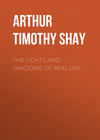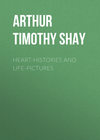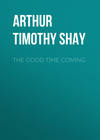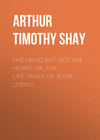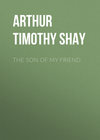Читать книгу: «Wreaths of Friendship: A Gift for the Young», страница 8
LAMENT OF THE INVALID
The earth is arrayed in the robes of spring,
And by the soft zephyr the green leaves are stirred;
With the wood-bird's note the pine forests ring,
And the voice of the robin's glad music is heard.
I see my companions abroad on the plain,
But the beauties of spring, they are not for me.
Oh! when shall I leave my dull prison again?
I am pining to roam 'mid the wild flowers free.
O green is the turf in the wildwood now,
And my spirit flies from the dwellings of men,
Where the wind blows soft through the cedar's bough,
And the voice of the streamlet is heard from the glen.
This dim-lighted chamber I long to resign
For my cherish'd retreat, 'neath the wide-spreading tree.
Through the long, long hours of day I pine
For the breath of the flowers and the hum of the bee.
No, not for me are the beauties of spring,
Nor the zephyr that sighs in the cedar's bough;
The birds of the forest all sweetly may sing,
But not for my ear is their music now.
Yet, merciful Father! I will not complain;
My hopes are all centred on heaven and Thee;
I know that thy grace will my spirit sustain—
I ask not for more—'tis sufficient for me.
THE USE OF FLOWERS
Just one moment longer, cousin Mary, I want to put this flower in your hair. Now doesn't it look sweet, sister Aggy?"
"Oh, yes! very sweet. And here is the dearest little bud I ever saw. I took it from the sweet-briar bush in the lane. Put that, too, in cousin Mary's hair."
Little Florence, seeing what was going on, was soon, also, at work upon Mary's hair, that, in a little while, was covered with buds and blossoms.
"Now she is our May Queen," said the children, as they hung fondly around their cousin, who had come out into the country to enjoy a few weeks of rural quiet, in the season of fruits and flowers. "And our May Queen must sing us a song," said Agnes, who was sitting at the feet of her cousin. "Sing us something about flowers."
"Oh, yes!" spoke up Grace, "sing us that beautiful piece by Mrs Howitt, about the use of flowers. You sang it for us, you remember, the last time you were here."
Cousin Mary sang as desired. After she had concluded, she said—
"Flowers, according to these beautiful verses, are only useful as objects to delight our senses. They are only beautiful forms in nature—their highest use, their beauty and fragrance."
"I think that is what Mrs Howitt means," replied Grace. "So I have always understood her. And I cannot see any other use that flowers have. Do you know of any other use, cousin?"
"Oh, yes. Flowers have a more important use than merely giving delight to the senses. Without them, plants could not produce fruit and seed. You notice that the flower always comes before the fruit?"
"Oh, yes. But why is a flower needed? Why does not the fruit push itself directly out from the stem of a plant?" asked Agnes.
"Flowers are the most exquisitely delicate in their texture of all forms in the vegetable kingdom. Look at the petals of this one. Could any thing be softer or finer? The leaf, the bark, and the wood of the plant are all coarse, in comparison to the flower. Now, as nothing is made in vain, there must be some reason for this. The leaves and bark, as well as wood, of plants, all have vessels through which sap flows, and this sap nourishes, sustains, and builds up the plant, as our blood does our bodies. But the whole effort of the plant is to reproduce itself; and to this end it forms seed, which, when cast into the ground, takes root, springs up, and makes a new plant. To form this seed, requires the purest juices of the plant, and these are obtained by means of the flowers, through the exquisitely fine vessels of which these juices are filtered, or strained, and thus separated from all that is gross and impure."
"I never thought of that before," said Agnes. "Flowers, then, are useful, as well as beautiful."
"Nothing is made for mere beauty. All things in nature regard use as an end. To flowers are assigned a high and important use, and exquisite beauty of form and color is at the same time given to them; and with these our senses are delighted. They are, in more respects than one, good gifts from our heavenly Father."
"Oh! how I do love the flowers," said Agnes; "and now, when I look upon them, and think of their use as well as their beauty, I will love them still more. Are they so very beautiful because their use is such an important one, cousin Mary?"
"Yes, dear; I believe this is so. In the seeds of plants there is an image of the infinity of our great Creator; for in seeds resides a power, or an effort, to reproduce the plants, that lie concealed as gems within them, to infinity. We might naturally enough suppose that flowers, whose use it is to refine and prepare the juices of plants, so as to free them from all grosser matters, and make them fit for the important office of developing and maturing seeds, would be exceedingly delicate in their structure, and, as a natural consequence, beautiful to look upon. And we will believe, therefore, that their peculiar beauty depends upon their peculiar use."
SLIDING DOWN HILL
Say what you will—talk about cold hands, feet, and noses, as much as you please—there are about as fine sports in winter as we get in the whole year. There is something very exciting in snow. A snow storm acts like electricity upon the spirits of the boys—and girls too, for that matter. How busy we used to be, on Saturday afternoon, when there was no school, as soon as the first flakes of snow had whitened the ground, making new sleds, and mending up old ones.
Our southern readers know very little about these sports of winter. I have a good mind to enlighten them a little. Imagine, my young friends—you who live so near the tropics that snow and ice are objects of curiosity—imagine, if you can, the earth covered to the depth of two feet or more with snow. In some places, the drifts are as high as your head, and higher too. When it first falls, the particles are loosely thrown together; but a warm sun or a little shower of rain melts them down a little, and then comes a night cold enough to freeze up your mouth, if you don't look out, and the surface of the snow becomes hard and slippery. Then such a time as the boys have sliding down hill—why, it is worth coming up as far north as New York, and running the risk of having your fingers frozen a little, to see them at it, and take a few trips down the hill.

SLIDING DOWN HILL.
A sled constructed for this purpose is a very simple thing. I will sketch one for you. Here it is, and a boy carrying it up the hill.

When the boy gets to the top of the hill, he sometimes lies and sometimes sits up on his sled, and lets it go. It finds its way down, without any of the boy's help, you may depend upon it. He has to guide it a little with his feet, though. If he did not, he might come in contact with another boy's sled, or a rock, perhaps; and that would be rather a serious joke, when the sled was going like the cars on a railroad.

Sometimes there are a dozen boys, all or nearly all with a sled of their own, sliding down the same hill at once. In fact, we used to have the whole school at it, now and then, when I was a little boy. It was a merry time then, you may be sure. Occasionally we would have a large sled, which it took three or four boys to draw up the hill. Then half a dozen of us would get on, and slide down in advance of the wind, it seemed to me—for it was so swift that I scarcely could breathe—until we came up all standing in a huge snow bank.
Sometimes, when we were half way down, and our locomotive was under a full pressure of steam, a boy would fall off, and, not being able to check the force he received from the sled, would go down to the bottom of the hill in a manner calculated to raise a very stormy concert of laughter from the rest of the boys. And the poor John Gilpin enjoyed the fun, too, or tried to enjoy it, as much as any of them, though he did not laugh quite so heartily; and he could well be pardoned for not doing that, certainly, until he had got to the end of his ludicrous race.
I can recollect a great many funny adventures connected with sliding down hill. I don't know that I ever laughed more in my life at any one time, than I did once at a feat of Jack Mason's. Jack was a courageous fellow—one of the most daring boys in the whole school. Some thirty or forty of us were one bright Saturday afternoon sliding down a fine hill, with a good level valley at its foot, when Jack challenged the boys to go down the other side, which was a great deal steeper, and which had an immense drift of snow at the bottom. No one dared to do it. We all thought it would be rather too serious business. Jack surveyed the ground for a few minutes, and screwed his courage up to the highest point. "I am going down," said he. We tried to dissuade him, but it was of no use. When Jack had made up his mind, you might as well attempt to turn the course of the north wind as to turn him. The words were no sooner out of his mouth, than down he went, like an arrow. We trembled for him, and held our breath almost, as we watched his sled; for it used to be a proverb with us, that Jack would break his neck one of these days, and we were not without our fears that the day had come.
Down went Jack on his sled, and in a few moments he was plunged in the snow bank out of sight. We all ran down to dig him out, scarcely daring to hope we should find him alive. We worked like beavers for a considerable time, and found nothing of the poor adventurer. At last, more than a rod from where he entered the bank, up popped Jack, as white with snow as if he had been into a flour barrel, tugging his sled after him, and grinning like a right merry fellow, as he was. Take it all in all, it was one of the most laughable sights I ever saw; and now as I write, and a sort of a daguerreotype likeness of Jack, just emerging, like a ghost, from that snow bank, comes up to my mind, I have to stop and laugh almost as heartily as I did at the scene itself, when it occurred.
A GARDEN OVERRUN WITH WEEDS
"Father, I don't like to go to school," said Harry Williams, one morning. "I wish you would let me always stay at home. Charles Parker's father don't make him go to school."
Mr Williams took his little boy by the hand, and said kindly to him, "Come, my son, I want to show you something in the garden."
Harry walked into the garden with his father, who led him along until they came to a bed in which peas were growing, the vines supported by thin branches that had been placed in the ground. Not a weed was to be seen about their roots, nor even disfiguring the walk around the bed in which they had been planted.
"See how beautifully these peas are growing, my son," said Mr Williams. "How clean and healthy the vines look. We shall have an abundant crop. Now let me show you the vines in Mr Parker's garden. We can look at them through a great hole in his fence."
Mr Williams then led Harry through the garden gate and across the road, to look at Mr Parker's pea vines through the hole in the fence. The bed in which they were growing was near to the road; so they had no difficulty in seeing it. After looking into the garden for a few moments, Mr Williams said—
"Well, my son, what do you think of Mr Parker's pea vines?"
"Oh, father!" replied the little boy; "I never saw such poor looking peas in my life! There are no sticks for them to run upon, and the weeds are nearly as high as the peas themselves. There won't be half a crop!"
"Why are they so much worse than ours, Harry?"
"Because they have been left to grow as they pleased. I suppose Mr Parker just planted them, and never took any care of them afterward. He has neither taken out the weeds, nor helped them to grow right."
"Yes, that is just the truth, my son. A garden will soon be overrun with weeds and briars, if it is not cultivated with the greatest care. And just so it is with the human garden. This precious garden must be trained and watered, and kept free from weeds, or it will run to waste. Children's minds are like garden beds; and they must be as carefully tended, and even more carefully, than the choicest plants. If you, my son, were never to go to school, nor have good seeds of knowledge planted in your mind, it would, when you become a man, resemble the weed-covered, neglected bed we have just been looking at, instead of the beautiful one in my garden. Would you think me right to neglect my garden as Mr Parker neglects his?"
"Oh, no, father; your garden is a good garden, but Mr Parker's is all overrun with weeds and briars. It won't yield half as much as yours will."
"Or, my son, do you think I would be right if I neglected my son as Mr Parker neglects his son, allowing him to run wild, and his mind, uncultivated, to become overgrown with weeds?"
Little Harry made no reply; but he understood pretty clearly what his father meant.
"I send you to school," Mr Williams continued, "in order that the garden of your mind may have good seeds sown in it, and that these seeds may spring up and grow, and produce plentifully. Now which would you prefer, to stay at home from school, and so let the garden of your mind be overrun with weeds, or go to school, and have this garden cultivated?"
"I would rather go to school," said Harry. "But, father, is Charles Parker's mind overrun with weeds?"
"I am afraid that it is. If not, it certainly will be, if his father does not send him to school. For a little boy not to be sent to school, is a great misfortune, and I hope you will think the privilege of going to school a very great one indeed."
Harry Williams listened to all his father said, and, what was better, thought about it, too. He never again asked to stay home from school.
JULIAN PARMELEE;
OR DISAPPOINTMENT SOMETIMES A BLESSING
In a pleasant New England village, several years ago, there was a good deal of excitement produced among the little folks, by the appearance, on the sign-post, and in the tavern and store, of some large placards, with very curious and funny pictures upon them. These placards made known the important fact, that, for the sum of ninepence, (a shilling, according to the currency of New York,) any boy and girl in the vicinity might have the pleasure of seeing some of the most astonishing feats of trained animals ever heard of. On a certain day there was to be a sort of juggler, who would play on some kind of instruments. The music made by this man would have the power of charming the animals—so the advertisement read—and the instant they heard it, they would commence playing their antics. There was a great black bear who would stand on his head; a dog who knew almost as much as his master; a cock that could walk on a pair of high stilts. Then there were learned monkeys, learned pigs, and I know not what besides.

THE "SHOW."
The pictures of these different animals, performing their several exploits, caused a great deal of wonder and admiration among the village boys and girls. In cities, where such exhibitions occur very frequently, such things would not be much thought of. But it is very different in the country, where public exhibitions of every sort are "like angels' visits, few and far between." For nearly a week before the day appointed for this juggling exhibition, there was nothing talked of in this quiet village so much as the "show." Ninepences that had been a twelvemonth in accumulating, were now in great demand; and more than one boy sighed as he reflected that he had spent his pennies in candies and other nice things, so that he had none left for the "show," and secretly resolved that he would be wiser next time, and not allow his money to slip through his fingers so easily.
Among those who had the permission of their parents to visit the exhibition, and who were anxiously longing for the day to come, were Julian Parmelee and his sister. Julian, especially—a boy of about nine years of age—was almost crazy with delight, when his mother told him he might go. He jumped, danced, clapped his hands, shouted, and went through so many strange manoeuvres, that his elder brother George, who was rather more sober on the occasion, said he guessed he should not go to the court-house and pay ninepence to see the show, for he was in a fair way to get the exhibition at home, for nothing.
"Oh, mother!" said Julian, "do you really believe the bear will stand on his head? What a funny sight it must be! I wonder if they keep the bear chained. I shall take care I do not get within reach of his paws, I guess. Charley Staples said he didn't believe it was half so big as the one he saw when he was up in Vermont. How big is it, mother? as big as our Carlo? Oh, I wish it was time to go now! I should think monkeys were very funny creatures. They say there is one in the show that rides a horse, just like a man. Ha! ha! ha!" And he laughed so loudly that he waked up the baby in the cradle.
I do not wonder at all that little Julian was so much delighted with the idea of going to this exhibition. It was something entirely new to him; and to children, especially, such singular feats as these animals were to perform, are always entertaining. It may, however, admit of a question, whether it is right, just for our amusement, to inflict so much pain upon these poor creatures as is necessary to teach them their several parts. It seems rather cruel. You know what the frogs once said to the boys, according to the fable, in the matter of stoning: "Young gentlemen, you do not consider, that while this is sport to you, it is death to us." These poor bears, and monkeys, and other animals, while they are going through their education, might use some such language to their teachers, perhaps, if they had the same faculty that the fable ascribes to the frogs. But, however that may be, it was very natural that Julian should be half frantic at the thought of seeing the show, and quite as natural that Julian's father and mother should consent to let him go.
Well, some two days before the exhibition was to take place, Julian was taken sick. There is a class of diseases—such as the measles and the whooping-cough—which, you know, almost every boy and girl must have some time or another; and it is not always left with the children to decide precisely when they shall take their turn. One of these diseases had made Julian a call, and insisted on staying with him a week or two. It was the whooping-cough. Julian wanted to be excused for a few days; but the old fellow told him, in his wheezing way, that he could not think of letting him off so long. Julian was disappointed, and cried a good deal. It did seem rather hard that he must be caged up in his chamber just at this time. He was not so sick as to make it necessary to stay at home; but his mother thought it would be wrong to allow him to go where there were to be so many other children, because they would be in danger of taking the disease from him. So it was decided that he could not see the "show;" and he fretted and stormed, and made himself very unhappy. He was usually a good-natured boy, but it must be confessed, that he was now quite out of humor.
"I don't see what I'm sick for, just when I wanted to go to the 'show.' I declare, it is too bad. And the whooping-cough, too! If it was any thing else, I could go. What under the sun—"
"There, Julian, that will do, I think," said his mother, kindly.
Julian checked himself, but he could hardly help muttering something about its being "very provoking."
Mrs Parmelee was silent for a while, until the peevishness of her child had a little time to subside, and then she said—
"My dear child, I am sorry that you should feel so; for you not only make yourself unhappy, but you are finding fault with God, and you know that is very wrong. God had something to do with your sickness. He could very easily have prevented it, if he had chosen to do so. But he did not choose to prevent it, and—"
"Well, why didn't he prevent it, mother?"
"Hear me through, my child. If he allowed you to be sick, when he could have kept you well, then it is certain that, on the whole, he would rather you would be sick. You see this, don't you, Julian?" "Yes, ma'am. God made me sick, didn't he?"
"There's no doubt that all diseases are under his control."
"Then, mama, I am sure that God—"
"Not quite so fast. I want you to see what you was doing, when you was so peevish a little while ago. You was very much out of humor. Indeed, I think you showed some anger."
"Oh, no, mother, I was not angry."
"Perhaps not, my child; but what would you call that spirit, if it was not anger?"
"I was—I was—provoked—I mean vexed, mama."
"Well, who vexed you?"
"Nobody; it was the whooping-cough."
"I'm very sorry that my child should get into such a passion—or vexation, whichever it may be—with the whooping-cough; for you say that you suppose the disease was under the control of God, so that it must have been rather an innocent sort of thing, after all. If you should fall into the mill-pond, and a man standing on the shore should let you struggle a while before he helped you out, you would get vexed, wouldn't you?"
"I guess I should."
"You would certainly have as much reason for vexation as you have had this morning. But would you be likely to get vexed with the water?"
"Why, no, mama. I should be provoked with the man, because he didn't help me out."
"I thought so. Well, then, don't you think you found fault with God, in this matter of the whooping-cough?"
"It may be so."
"It must be so."
Little Julian was a thoughtful child. He saw that this spirit of peevishness was very wrong, and that he had murmured against God. He told his mother that he hoped he should not do so any more. He was silent for some minutes, and then said—
"There is one thing I would like to know about, mother; but it may be I ought not to ask."
"What is it, Julian?" asked his mother.
"If God is kind, and if he loves us, why does he let us get sick? I am sure you would keep me well all the time, if you could, because you love me, and because you are good and kind."
"I am glad you asked that question, Julian. There are a great many things which we cannot understand about the government of God. But I think I can explain this to you. God, it is true, often disappoints us, and gives us pain, and makes us weep. This would all seem very strange, and almost unkind, if we did not know that God has some other end in view besides making us happy in this life. He is training us for another world; and if you live to be a man, you will see that such disappointments as this of yours, for a part of God's plan of fitting his children for heaven."
"But I think we should be just as good, if he did not make us feel bad and cry."
"That is your mistake. Do you think you would be just as good a child, if your parents always humored you, and gave you every plaything you asked for? Are you quite sure that you would now mind your father and mother as well, if you had always been allowed to have your own way?"
"But you don't make me sick, mother."
"True. We correct you in another way. But we sometimes give you pain, and make you cry. Did you ever think, when your father reproved you and punished you, that it was because he did not love you?"
"Oh, no, mother."
"You can see how your father can be kind and affectionate, and still give you pain?"
"Yes, ma'am."
"Then cannot you see how God may disappoint his children, and even make them unhappy for a time, and love them tenderly, too?"
"Oh, mother, I see it all now! I wonder I never thought of this before! Well, the whooping-cough is not so bad, after all. I've learned something by it, at any rate."
"Yes, and it may be worth a great deal more to you than the 'show' would have been."
Покупайте книги и получайте бонусы в Литрес, Читай-городе и Буквоеде.
Участвовать в бонусной программе











